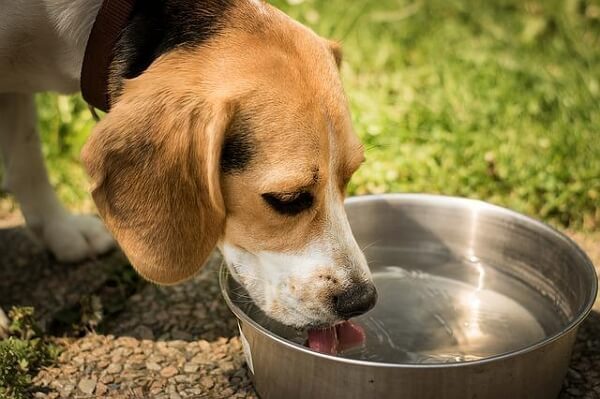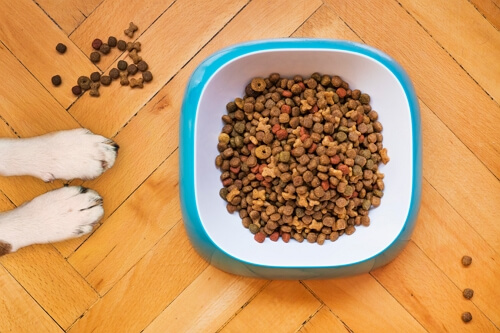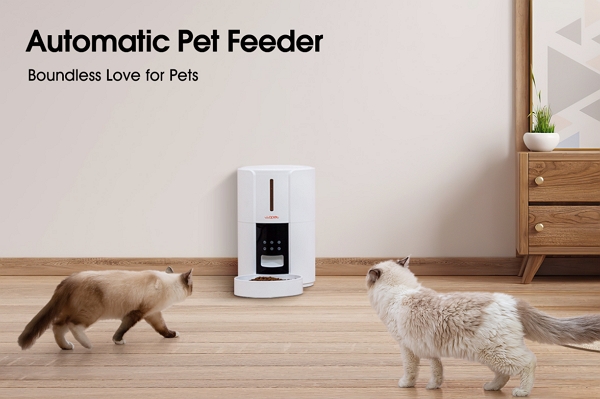-
Home
-
Shop
New -
Explore
-
Support
-
Track Order
Feb 07, 2023
Author:Jackson Watson
For years, people have been wondering how long it takes for dogs to digest food. There isn't an easy answer, unfortunately. Dogs can digest food quickly, but that doesn't mean they process it immediately. In this blog post, we will explore how long it takes a dog to digest food and what factors affect the process. We will also discuss how to help your dog's digestion process run smoothly!
The dog's digestive system is a complex process that breaks down food into nutrients that the dog's body can use.
Food enters the dog's mouth and is then chewed and mixed with saliva. Following the esophagus, the food travels to the stomach. The stomach acid breaks down the food further and kills any bacteria that may be present.
The food enters the small intestine from the stomach, where most nutrient absorption occurs. The small intestine is about thirteen feet long and is coiled like a spring.
The food then enters the large intestine, absorbing water and electrolytes. The large intestine is about two feet long and leads to the dog's rectum and anus, where wastes are eliminated.
The entire process, from start to finish, takes anywhere from six to eight hours, though it can vary depending on the dog's size, age, diet, and health.
The answer to how long it takes a dog to digest food depends on many factors, such as:
The dog's size will significantly affect how long it takes to digest its food. Smaller dogs will generally have quicker digestion than larger dogs.
Certain dog breeds are known to have faster or slower metabolisms. For example, Greyhounds have a speedy metabolism and can digest their food quickly. On the other hand, Bulldogs have a slow metabolism, and it takes them longer to digest their food.

A dog's metabolism slows down as he ages.. This means that it will take them longer to digest their food.
If your dog is very active, it will have a faster metabolism and digest its food quicker. On the other hand, if your dog is more relaxed and lazy, then their metabolism will be slower, and it will take them longer to digest their food.
If your dog is well hydrated, their digestion will be quicker. Conversely, it will take them longer to digest their food if they are dehydrated.

Some diseases and health conditions can affect a dog's digestion. For example, if your dog has pancreatitis, it will take them longer to digest their food.
The digestibility of the food also plays a role in how long it takes for a dog to digest its food. For example, cooked meat is easier to digest than raw meat.
If your dog exercises after eating, it will help them to digest their food quicker.

The type of food and quality will also affect how long it takes for a dog to digest its food. For example, if your dog eats a lot of processed foods, it will take them longer to digest their food.
If your dog has food allergies, it will take them longer to digest their food.
Final Verdict
All in all, it takes around four to eight hours for a dog to digest a meal fully. If you have a smaller dog, then it will take around 4 hours for him to digest food. In contrast, a larger dog will take 8 eight hours to digest food.
So, if your pooch has just eaten, be patient and give them some time before their next potty break!
Here are some effective ways to treat dog digestive issues:
There are a number of different possible causes of digestive issues in dogs, so it's essential to consult with a professional before attempting to treat the problem on your own. Your veterinarian will be able to help you identify the root cause of your dog's digestive issues and recommend the best course of treatment.
There are a variety of digestive-care dog foods available on the market that can help to alleviate your dog's digestive issues. These types of food typically contain ingredients that are easy to digest and are designed to support digestive health.
So, make sure to select the best digestive-care food for your dog based on their individual needs.

There are several vitamins and supplements that can help to support your dog's digestive health. For example, probiotics are a supplement that can help restore the balance of good bacteria in your dog's gut.
Probiotics are easy to find at most pet stores or online, and they come in various forms, including powders, capsules, and liquids.
Another supplement that may be beneficial for your dog's digestion is enzymes. Enzymes help break down food so your dog can absorb the nutrients more easily.
You can find enzymes in powder or tablet form at most pet stores.
One of the best things you can do for your dog's digestive health is to feed them regular meals on time. It is also essential to develop healthy eating habits. Speaking of giving your dog regular and timely meals - there's a better option—the WOpet Dog Smart Feeder.

The WOpet Smart Feeder allows you to set times to automatically feed your pet, helping to control their body weight and establish good eating habits. Additionally, the recording and voice interaction feature lets your furry friend feel like you're always by their side, even when you're away.
So if you're looking for a way to better care for your pet, WOpet automatic dog feeder is your best bet.
Popular Post

Why Does My Cat Cough After Drinking Water? 8 Potential Reasons
Mar 13, 2023

My Cat Only Eats A Little at A Time - What to Do?
Feb 27, 2023

What to Feed a Sick Dog With No Appetite? [2024 Guide]
May 16, 2023

Why Is My Dog Being Destructive All of A Sudden?
Feb 04, 2023

Do Puppies Miss Their Moms
Feb 11, 2023
Copyright © 2024 WOPET. All Rights Reserved.